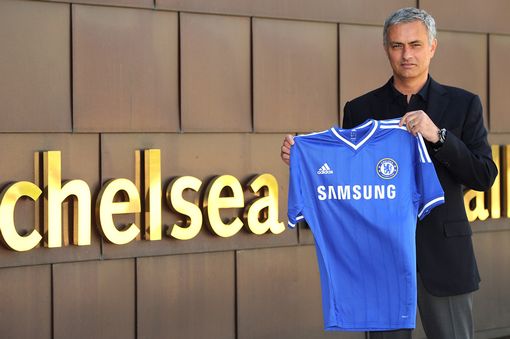“The Rules of the Game” : Chelsea’s Brilliant Business Model is an Example to Follow
 In the volatile football-transfer market in Europe, the ability to buy and sell wisely is the key to creating a winning team and balance the books at the end of the year. With the recent introduction of UEFA Financial Fair Play, even the wealthiest clubs are under pressure to meet certain requirements. Among this elite group of giants, one particular club shows incredible proficiency in the last couple of transfer windows in that department. For the surprise of many, this is Chelsea Football Club.
In the volatile football-transfer market in Europe, the ability to buy and sell wisely is the key to creating a winning team and balance the books at the end of the year. With the recent introduction of UEFA Financial Fair Play, even the wealthiest clubs are under pressure to meet certain requirements. Among this elite group of giants, one particular club shows incredible proficiency in the last couple of transfer windows in that department. For the surprise of many, this is Chelsea Football Club.
A decade after Roman Abramovich became the owner of Chelsea FC, the Blues were associated with limitless spending sprees. But, in the summer of 2013, Abramovich brought back the man that put the club on the big stage in England and Europe – José Mourinho. Multimillion-pound transfers followed to strengthen the squad according to the vision of the “Special One”, but few expected that similar value sales could be realized.
If we take a closer look at the movements since the arrival of the Portuguese, curious trends can be identified. Romelu Lukaku, initially bought for €22m from Anderlecht, was loaned and then sold to Everton for a combined fee of nearly €40m. Juan Mata, bought for €27m, was transferred to Manchester United making a €17m profit. David Luiz, who cost €27m was sold to Paris Saint-Germain this summer for a fee around €50m.
 Kevin De Bruyne, bought for €8m in the summer of 2012 was sold to Wolfsburg a year ago for €22m. These are only four examples of the prudent transfer policy that enabled Chelsea to profit on players that didn’t fit well into the system of Mourinho. The money coming in was used to purchase the rights of this season’s top goalscorer in England– Diego Costa, and the player with most assists – Cesc Fàbregas.
Kevin De Bruyne, bought for €8m in the summer of 2012 was sold to Wolfsburg a year ago for €22m. These are only four examples of the prudent transfer policy that enabled Chelsea to profit on players that didn’t fit well into the system of Mourinho. The money coming in was used to purchase the rights of this season’s top goalscorer in England– Diego Costa, and the player with most assists – Cesc Fàbregas.
When looking at these astonishing numbers, we must mention that lately Real Madrid have successfully adopted a similar approach. By selling players who seem like key performers, they have actually found better substitutes while cashing in solid sums. But, they still lack behind the London Blues, who despite cruising towards their fifth domestic title, is a club with a long-term strategy for continuous success.








